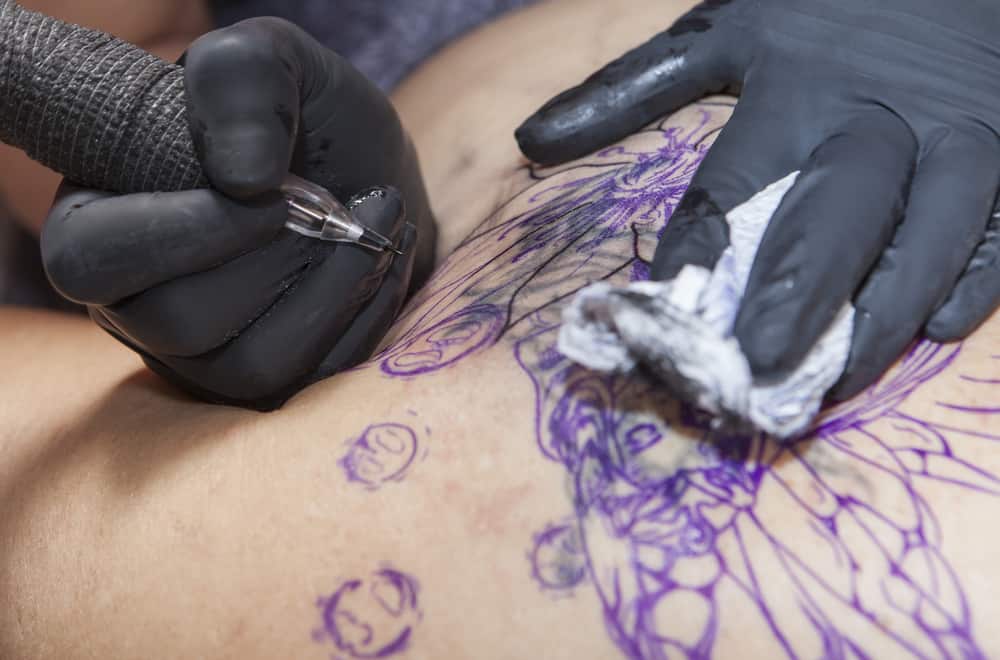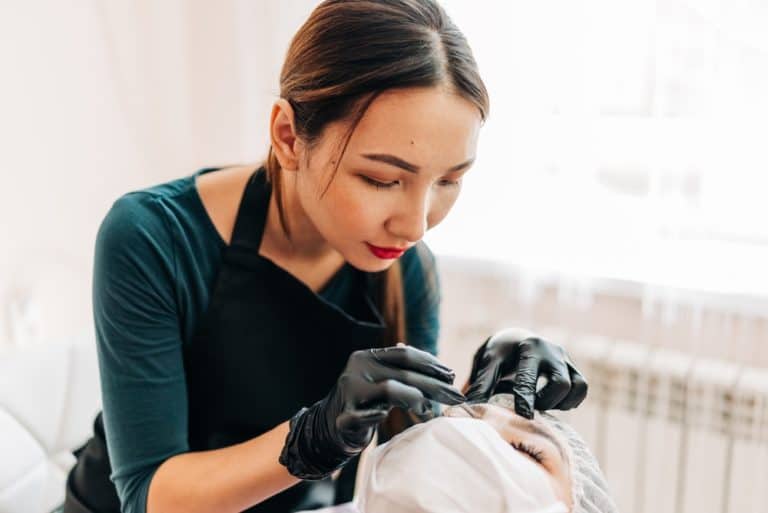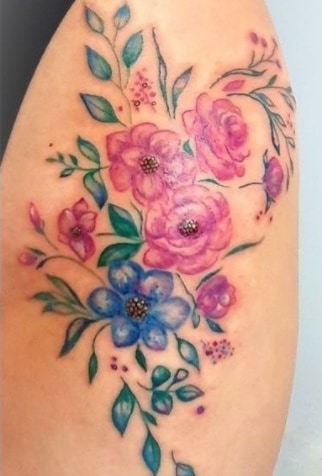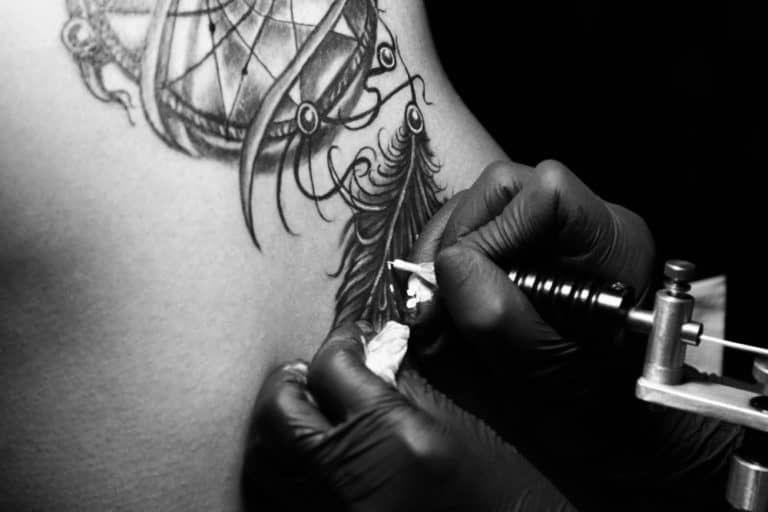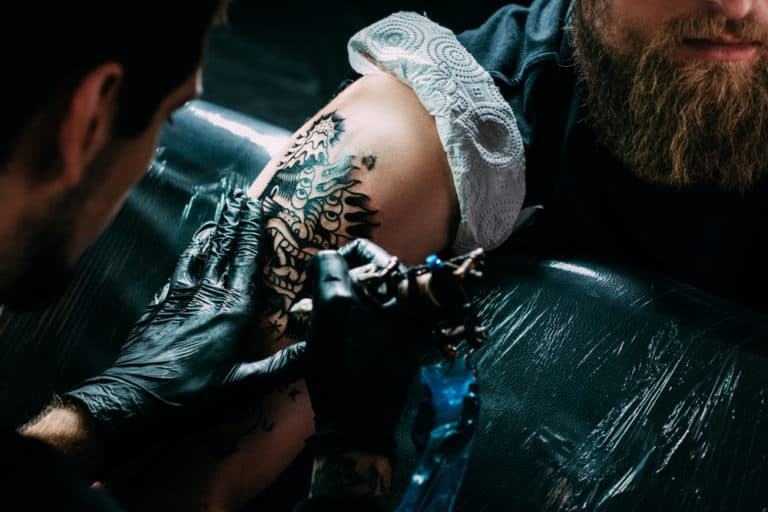Can You Go Over A Healed Tattoo?
If you are relatively new to the tattoo world, you might find yourself wondering if it’s possible to go over a tattoo. Maybe you’ve already got a tattoo you’re not satisfied with, or you’re scared that you can get stuck with a messed-up tattoo. Thankfully, there is a simple answer to the question: can you go over a healed tattoo?
You can go over healed tattoos. There are various reasons someone may choose to go over a tattoo: touch it up, add in some more details, or do a complete cover-up with something new. As long as the tattoo has had time to heal properly, there shouldn’t be any issues with going over it again.
There will rarely be any issues with going over a healed tattoo, depending on what you are looking to do. However, it requires just as much thought as getting an original tattoo. You need to consider why you are going over it; for a touch-up, cover-up, or something else, and make decisions and arrangements accordingly.
Can You Go Over A Healed Tattoo?
Going over healed tattoos – old or new – is a common experience in the tattoo community due to all the possible reasons someone may want to go over a tattoo. Once a tattoo has had the time and opportunity to heal properly, it can easily be worked over.
How Long Should You Wait Before Going Over A Tattoo?
On average, the surface healing time for a tattoo is 2 – 3 weeks. The healing time for tattoos does vary depending on size and the person. Some people naturally heal faster or slower than others. Healing after a tattoo can be an uncomfortable process, and having a waiting period before doing anything again will rule out easily avoidable issues.
What Not To Do When Going Over A Tattoo
There are a lot of mistakes people make when it comes to going over tattoos – whether they are old or new.
- Not Allowing Your Tattoo To Heal
Getting a tattoo is not exactly known to be an easy, painless experience. Disregarding the initial pain of actually getting the tattoo, they can be extremely uncomfortable during the healing process. Then there is always the possibility of getting an infection, even when you take care of your new ink.
Unfortunately, many people have regrets right after getting a tattoo and want to fix it immediately. This is pretty much always a terrible idea. With the swelling, itching, and tenderness, the last thing you want to do is upset the area more by going over a fresh tattoo. Not only will it hurt a lot more than getting a tattoo on an untouched area, but it will also drastically increase the risk of infection.
Remember that the bigger the tattoo, the longer it will take to heal and the more challenging it will be for your immune system.
- Rushing Into A Design
Whether it’s not realizing the true meaning of a symbol or design until it’s too late or simply picking something sloppy or not your taste, you should never rush into a design for the sake of getting a tattoo or covering one up. Tattoos are permanent – or just a pain to remove – so take the time to research the meaning and pick something you genuinely love.
Further, if you are desperate to cover up a tattoo, you may find yourself being hasty to get the whole process over with. Yet again, take the time to assess all your cover-up design options and choose something that won’t just act as a cover-up, but you will be proud of. You don’t want to be stuck with another bad tattoo just after covering one up.
- The Wrong Artist
Whether you just want a touch-up, a cover-up, or something in between, the artist you choose is important. Once again, don’t let your haste push you into a bad decision. A good artist is going to have a busy schedule, and appointments are often made weeks, or even months, in advance. These artists don’t come cheap either. You pay for the quality you get.
Take the time to save up and go back in, find the right artist for what you want, and make an appointment. Getting a lovely piece of art on your body is worth waiting a few weeks or months in the grand scheme of things. Acting in urgency may only make a bigger mess.
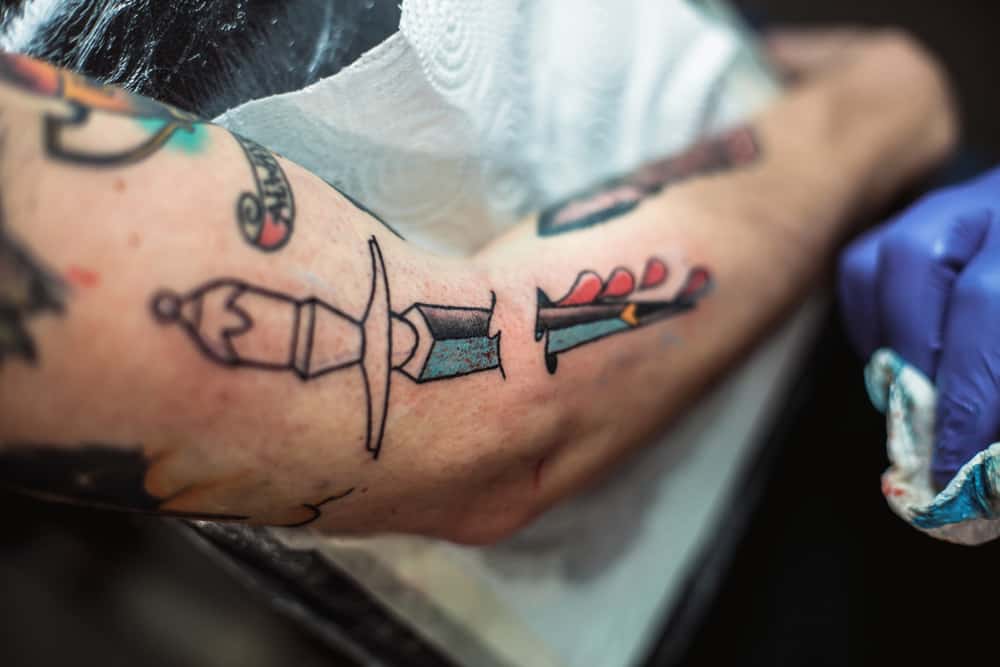
Getting A Tattoo Touch-Up
There’s nothing wrong with getting a touch-up; it’s actually quite common and highly recommended. Tattoos could be a little faded if they didn’t heal properly – or sometimes even if they did. But overall, every tattoo will fade with time. Thus, getting a touch-up every now and again is a great idea to keep your ink looking fresh.
Everyone’s skin heals and reacts differently to tattoo ink, so touch-ups are perfectly normal and are often no one’s fault. The leading causes for immediate touch-ups are small imperfections in the original tattoo; maybe a patch of skin didn’t take the ink as well as the rest. However, touch-ups shouldn’t be done until the tattoo has had enough time to heal fully.
There is also an initial touch-up within a year of getting the tattoo, but this can be done at any time you notice the ink fading. However, as time passes, you will likely need fewer touch-ups. Whether you get a touch-up after five years or ten years doesn’t matter. As long as you are happy with how your tattoo looks, you shouldn’t worry about how often others go in for a fix.
Going Over A Healed Tattoo For A Cover-Up
It’s not uncommon to look back at one of your tattoos and wish it were different or that you didn’t get it. Laser treatments to remove the tattoo aren’t an option for everyone; thankfully, it is more than possible to go over a healed tattoo with something new.
Laser removal is expensive, extensive, and unreliable. Cover-up tattoos are consistent, ensure complete coverage, and are the price of a regular tattoo of the same size and style.
Cover-up tattoos are becoming more and more popular and are a favorite alternative to getting a tattoo removed. You will find tattoo artists who love to do cover-ups and others who despise the process. Getting a cover-up tattoo is just as easy as getting an original with the right artist.
Conclusion
It is entirely possible to go over a healed tattoo, no matter your reason or goal. However, the process of getting this done depends on what you want to do and how big your tattoo is. It is best to speak to a tattoo artist when thinking about going over one of your tattoos.

